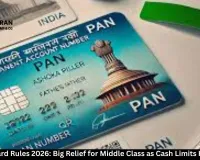The Death of Degrees: Is Your Hard-Earned Diploma Now Just a Decorative Piece of Paper?
Digital Desk

Is your university degree becoming worthless? Explore India's employability crisis as over 50% of graduates are deemed unemployable. Learn why skills are now trumping traditional B.Tech, BA, & BCom degrees & what this means for your future.
For generations, a university degree was the undisputed golden ticket to a secure job and elevated social standing. But a harsh new reality is setting in across India: that very ticket is rapidly losing its value.
We are witnessing what analysts are terming the "death of degrees," a systemic collapse in the relevance of traditional qualifications like B.Tech, BA, BSc, and BCom.
The evidence is stark. Reports consistently show that over half of Indian graduates are deemed unemployable, their degrees failing to equip them with the skills the market demands.
The framed certificate, once a symbol of pride and promise, now often hangs on the wall as a bitter reminder of broken dreams and financial investment gone awry.
Why are Degrees Failing?
The decline is multifaceted. The primary culprit is the commodification of education. The explosion of private colleges, many prioritizing profit over quality, has flooded the market with graduates. This oversupply has drastically diluted the degree's value.
When qualifications become commonplace, their power to guarantee employment diminishes.
Furthermore, the erosion of academic rigor has shattered the trust that degrees once commanded. The perception that exams are no longer rigorous and that degrees can be bought through fees rather than earned through merit has severed the social contract between education and employability.
Employers can no longer trust that a degree holder possesses a minimum standard of competence or wisdom.
This has led to a fundamental shift in hiring practices. Companies are increasingly agnostic about an applicant's specific degree. Instead, they focus on checklists of specific skills.
The question is no longer "Where did you graduate from?" but "What can you actually do?" This trend fuels the popularity of short-term, skill-based certifications from platforms like Coursera and Google, which offer a more direct path to employability.
A Deeper Loss
The crisis runs deeper than just unemployment. Historically, a degree was meant to signify not just a skill set, but the cultivation of wisdom, critical thinking, and human values.
It was this broader intellectual foundation that made a graduate suitable for roles in civil services or leadership.
The modern system, in its failure, often reduces education to a transactional process, leaving a void where holistic development should be.
The Path Forward
The message is clear: the era of relying solely on a four-year degree as a guaranteed passport to success is over. While degrees from premier institutions may hold their value, the average diploma is in peril.
The future belongs to a hybrid model a foundation of formal education continuously supplemented by demonstrable, relevant skills.
For students and parents, this means looking beyond mere college admission and critically evaluating the actual skills and value an institution provides.
The "death of degrees" is a wake-up call for a profound systemic overhaul. It challenges centuries-old paradigms and demands a redefinition of what it means to be truly educated in the 21st century.
The power is shifting from the prestige of the parchment to the proof of proficiency.











